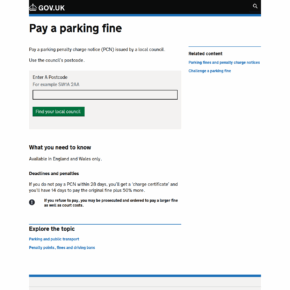Scammers are using fake Facebook ads to promote a fraudulent “Books2Door $2.99 Clearance Sale” in order to trick users into visiting sham ecommerce websites. These scam sites appear professional at first glance but are designed to steal your money and personal information. Read on to learn more about how this Books2Door clearance sale scam works, how to identify their deceptive Facebook ads, and most importantly, how to avoid becoming the victim of this nefarious online fraud.
- Overview of the Books2Door $2.99 Clearance Sale Scam
- How the Books2Door $2.99 Clearance Sale Scam Works
- What You May Receive If You Order From a Books2Door Scam Site
- Red Flags to Spot Deceptive Books2Door Facebook Ads
- How to Avoid the Books2Door Clearance Sale Scam
- What to Do If You Are Scammed by a Books2Door Website
- Frequently Asked Questions About the Books2Door Scam
- Conclusion

Overview of the Books2Door $2.99 Clearance Sale Scam
The Books2Door clearance sale scam takes advantage of people’s desire to find great deals on books, ebooks, and audiobooks. The scammers create Facebook ads that entice users to visit their fake e-commerce websites by promoting clearance sales with huge discounts like “Closing Stores – Everything Must Go!” and “Liquidation Sale! Huge Savings!”
However, when users visit these scam sites and attempt to purchase deeply discounted books and audiobooks for just $2.99, the websites simply take their money without ever fulfilling the orders. Customers receive nothing for their money, while the scammers make off with the payments and personal information provided during checkout.
This Books2Door scam is perpetrated through an interconnected network of fraudulent sites and ads traced back to cybercriminal groups in China. The scam network manages a multitude of fake shopping websites designed to look legitimate and trustworthy to unassuming customers. But their only purpose is to defraud shoppers out of money and steal personal data.
By luring victims through social media ads and promoting improbable clearance sales on books, this scam preys on people’s desire to find bargains on reading material. The scam sites appear professional with seemingly legitimate policies and contact pages, but further inspection reveals many red flags: lack of real contact information, stolen product images, nonexistent social media pages, and more.
Victims of the Books2Door scam soon find their orders go perpetually unfulfilled, and some receive nothing, cheap knock-offs, used or tampered books, or completely wrong items. On top of taking people’s money, the sites also steal names, addresses, phone numbers, and credit card details during signup and checkout.
Read on for a more in-depth explanation of how exactly this Books2Door Facebook scam operates, how to recognize their deceptive ads, and most crucially, how to avoid being defrauded by these criminal ecommerce websites designed to steal your money and information.
How the Books2Door $2.99 Clearance Sale Scam Works
The Books2Door scam uses Facebook ads promoting clearance book sales leading to a network of fraudulent sites. Here are the steps scammers take to defraud victims once they click these Facebook ads:
Step 1: Deceptive Facebook Ads Promise Huge Discounts
The scam starts with Facebook ads promoting clearance book sales from fake retailers like “Books2Door” at incredibly low prices around $2.99 per book or audiobook. The ads utilize tempting language like “Closing Stores – Everything Must Go!”, “Huge Savings!”, and “Clearance Sale!” to entice people to click.
Interested readers end up getting redirected to elaborate scam websites made to look like legitimate online bookstores initially. Images of bookshelves, book imagery, and messaging about supporting local bookstores help make the sites seem authentic.
Step 2: Visitors Land on Elaborate Fake Ecommerce Websites
Upon clicking the Facebook ads, users get sent to fake ecommerce websites made to closely mimic legitimate online bookstores. The sites look convincing at first glance with professional templates, stock photos of books, and sections like Bestsellers, About Us, Contact, etc.
The websites often use the Books2Door name from the Facebook ads. Other times they use made up bookstore names like “Booksauce,” “UrbanBookOutlet,” or “YourBookShop.”
To bolster credibility, the sites also commonly claim things like:
- “We support local bookstores!”
- “Book-lovers welcome!”
- “A book a day keeps the boredom away!”
Review sections on the sites feature fake 5-star reviews with generic names praising the selection and prices.
Step 3: Visitors Add Books to Their Cart for Just $2.99
As visitors browse the clearance book selection, they find almost every popular title like new bestsellers available for just $2.99, reduced from $24.99 or more.
There may be a countdown timer and messages urging them to hurry before the deals expire. Given the huge purported discounts, visitors are incentivized to add multiple books to their carts at the $2.99 price.
Audiobooks also show absurdly cheap $2.99 prices regardless of their normal cost. Every book and audiobook on the site essentially costs $2.99 during this clearance sale.
Step 4: Customers Checkout and Provide Personal/Payment Details
When ready to purchase, customers proceed through the checkout process like any ecommerce transaction. They provide personal details like name, shipping address, email, and phone number.
For payment, the sites accept major credit cards, PayPal, Venmo, or crypto payments. Customers enter credit card numbers, CVV codes, expiration dates, and other sensitive payment details the scam stores claim they need to process transactions.
Some sites use insecure HTTP rather than HTTPS, failing to encrypt entered information during checkout. Others use free SSL certificates like Let’s Encrypt rather than premium certificates, another red flag.
Step 5: Scam Sites Take Payments and Data But Never Fulfill Orders
After completing checkout and payment, no actual products get shipped to waiting customers. The sites simply take shoppers’ money and personal information without sending anything.
Any emails customers receive after ordering just provide vague shipping updates or delivery estimates without tracking numbers. Orders disappear after payments process, and the sites never deliver on their promises.
At best, victims receive nothing for their money lost to these sham bookstores. Others eventually receive fake tracking information, knock-off items, or completely random goods instead of the books purchased.
Step 6: Scammers Disappear and Move on to Next Targets
With payments collected and personal data stolen, the scammers behind the sites disappear. They shut down scam sites once too many customers catch on and complaints pile up.
Then the scam network simply launches new fake bookstore sites to perpetrate the same clearance sale fraud targeting fresh victims. The cycle endlessly repeats as they operate new scam sites simultaneously while old ones get taken down.
What You May Receive If You Order From a Books2Door Scam Site
While most victims of the Books2Door Facebook scam receive nothing at all for their money, some end up with the following undesirable outcomes after placing orders:
- Cheap Knockoffs – Some orders arrive containing cheap replica versions clearly not the real product described online. The fakes are made with inferior materials and poor quality.
- Used or Damaged Goods – Customers sometimes receive items that are visibly used, broken or tampered with in some way. Scammers may ship out damaged customer returns or counterfeits.
- Completely Wrong Items – Instead of the books ordered, victims receive random products like electronics, clothing or other goods showing no order accuracy.
- Stolen Credit Card Info – Even if you receive a physical item, your credit card details entered on the site may get stolen and sold on the dark web. Fraudulent charges could appear later.
No customers receive the actual new books they ordered for just $2.99 as promoted. The scam sites never intend to fulfill the heavily discounted orders. Any items sent likely come from other scammed customers who demanded refunds or complained about wrong orders.
Red Flags to Spot Deceptive Books2Door Facebook Ads
Scammers running this book clearance sale fraud rely on Facebook ads to drive unsuspecting customers to their fake sites. Here are red flags to watch for when assessing Facebook ads promoting unbelievable book discounts:
- Too-Good-to-Be-True Pricing – New bestselling books and audiobooks don’t actually get discounted to just $2.99 legitimately. Claims like “80% off all books!” or “Ebooks starting at $2.99” are clear warning signs.
- Suspicious Urgency – Language urging customers to act fast like “Today Only!” or “Limited Time Offer!” creates unjustified urgency to entice clicks without scrutinizing the seller.
- Stock Images – The ad creatives utilize generic stock book photos rather than real brand imagery. Scammers haven’t partnered with actual book publishers.
- Poor Reviews – The Facebook ads may have predominantly negative ratings and reviews complaining about nondelivery and fraud.
- Short Lifespans – Because complaints pile up, scam Facebook ads frequently get deleted and recreated to hide low ratings. Check for recent posting dates.
- Grammatical Errors – Deceptive ads may contain typos, bad grammar, and other linguistic red flags indicating foreign scammers rather than legitimate U.S. publishers.
- No Physical Address – Check ad details for a verifiable company address and contact info beyond just a website. Scam ads won’t list this legitimate business information.
Stay vigilant against any Facebook ads promoting deals that seem too good to be true on books. Verify the retailer is real, look for feedback and complaints, and confirm a physical address before clicking questionable discount promotions. If an ad appears scammy, report it rather than engaging.
How to Avoid the Books2Door Clearance Sale Scam
Avoid wasting money and falling victim to this Books2Door Facebook scam by heeding these tips:
- Avoid Ads With Red Flags – Be wary of unbelievable discount claims in Facebook ads and look for other red flags covered above. Report suspicious ads instead of clicking.
- Research Retailers Thoroughly – Don’t rely just on claims made in the ad creative. Look up any ecommerce site before purchasing to ensure it’s legitimate.
- Verify Physical Address – Reputable retailers list their corporate address and contact info. Research any stores lacking this information to ascertain they really exist.
- Search for Complaints – Look online for reviews and feedback about the company to uncover reported issues from other customers.
- Beware New Sites – Domains registered very recently may signal short-lived scam sites. Verify registrations for several years at least.
- Check Site Professionalism – Amateurish designs, stock photos, and grammar issues indicate scam sites built quickly without much care or investment.
- Price Check Discounts – If a discount seems unbelievable compared to normal retailer pricing, it likely is. Confirm purported deals against Amazon or major booksellers.
- Avoid Quick Purchases – Don’t rush into purchases when pressured by timers or claims of limited stock. Scammers want hasty decisions without scrutiny.
Stay vigilant when evaluating too-good-to-be-true discount promotions on Facebook or other platforms. Do your due diligence researching retailers to determine their legitimacy and avoid enticing offers from scam stores seeking to defraud eager deal seekers.
What to Do If You Are Scammed by a Books2Door Website
If you unfortunately fell victim to the Books2Door clearance book scam and lost money or personal data, take these steps right away to mitigate damage:
Request Chargebacks From Your Credit Card Company
If you paid by credit card, immediately contact your card issuer to report fraudulent charges. Request that they reverse the charges by starting a chargeback dispute. Provide details about the scam and emphasize you never received the items ordered.
Under the Fair Credit Billing Act, credit card users have protections against fraudulent sellers. Time is of essence though, as chargeback rights expire 90-120 days from the transaction date. Move quickly!
File a Complaint With the FTC
Report online shopping fraud like this to the Federal Trade Commission to help warn others and assist in law enforcement efforts against scammers. File detailed complaints on the FTC website or by calling 1-877-FTC-HELP.
Watch for Suspicious Activity
Monitor financial accounts closely for signs of any suspicious charges or unauthorized activity following the scam. Scammers may sell or abuse stolen credit card details. Immediately notify issuers of any transactions you don’t recognize.
Consider signing up for dark web monitoring of your info as well to look for stolen credentials being traded online.
Reset Online Account Passwords
Change the passwords on any online accounts that used the same login credentials you entered on the scam websites during signup or checkout. Scammers may have access to these details if stored.
Contact Banks/Payment Processors
If you paid using methods like PayPal or Venmo, contact their fraud departments right away. They may be able to pursue refunds on your behalf or take other remediation actions like blocking linked payment methods.
Provide details of the scam store and unauthorized transactions. Timeliness is critical as policies regarding scams and chargebacks differ across payment providers.
Warn Contacts About the Scam
Notify close friends, family, and other contacts about this scam if you suspect your personal details like emails or addresses could be abused. This helps prevent scammers from targeting your wider network next using stolen info.
Warning others also helps curb these scams from spreading further to claim more unsuspecting victims.
By promptly reporting fake shopping websites that defrauded you and taking steps to protect accounts and monitor activity, you can limit damages and prevent scammers from profiting any further from your misfortune.
Frequently Asked Questions About the Books2Door Scam
What is the Books2Door $2.99 clearance sale scam?
This scam uses Facebook ads to promote fake ecommerce websites offering $2.99 books and audiobooks. The sites take orders and payments but never deliver any products, essentially stealing customers’ money.
How do scammers advertise the fake book sales?
Scammers run Facebook ads leading to scam sites using tempting language like “Closing Stores – Everything Must Go!” and “Clearance Sale! Prices Slashed!”. The ads promise impossibly cheap prices on bestselling books and audiobooks.
What happens when you order from one of these scam websites?
In most cases, absolutely nothing is delivered after placing orders and no refunds are provided. Some customers receive cheap knockoffs, used books, or random unacceptable items. Either way, the sites keep shoppers’ money and personal information.
What types of books do the scam sites claim to sell?
The fake sites advertise clearance prices on almost every popular new release, bestseller, or audiobook regardless of normal retail pricing. They prey on demand for discounted books that seem too good to pass up.
How can I identify the Facebook ads for these fake book sales?
Red flags include too-good-to-be-true pricing, high-pressure urgency tactics, stock book photos, poor reviews, grammatical errors, and missing business address details. Use skepticism evaluating any unbelievable book discounts promoted through ads.
What should I do if I already placed an order with one of these scam websites?
Immediately contact your credit card company to report fraudulent charges and request a chargeback of any payments. Also file complaints with the FTC and any payment providers used. Monitor accounts closely for misuse of stolen financial data as well.
How can I avoid getting scammed by these fake Facebook book ads?
Carefully research advertised retailers, look for warning signs in ad creatives, price compare discounts against legitimate sellers, avoid quick purchases from pressuring sites, and report suspicious ads instead of engaging with them.
Conclusion
Scammers are rampantly misusing Facebook ads to promote fake book clearance sale websites and defraud eager readers seeking deals online. Luring victims with tempting promotions of bestsellers for just $2.99, these scam stores have no intention of ever fulfilling orders.
Once payments are processed and personal data collected, the sites shut down and disappear without sending any actual products. At best, victims are simply out the money lost. At worst, they suffer financial data theft and account breaches.
Everyone should be wary of unbelievable discount claims on social platforms and carefully research advertised retailers before making purchases or providing data. Look for red flags in ad creatives, inspect sites for legitimacy, and search for complaints to avoid enticing clearance sale scams.
When assessing purported discounts – if the deal seems too good to be true, it almost certainly is. Exercise caution, skepticism, and diligent verification before jumping at deals promoted through social ads to avoid this Books2Door scam defrauding eager booklovers.



